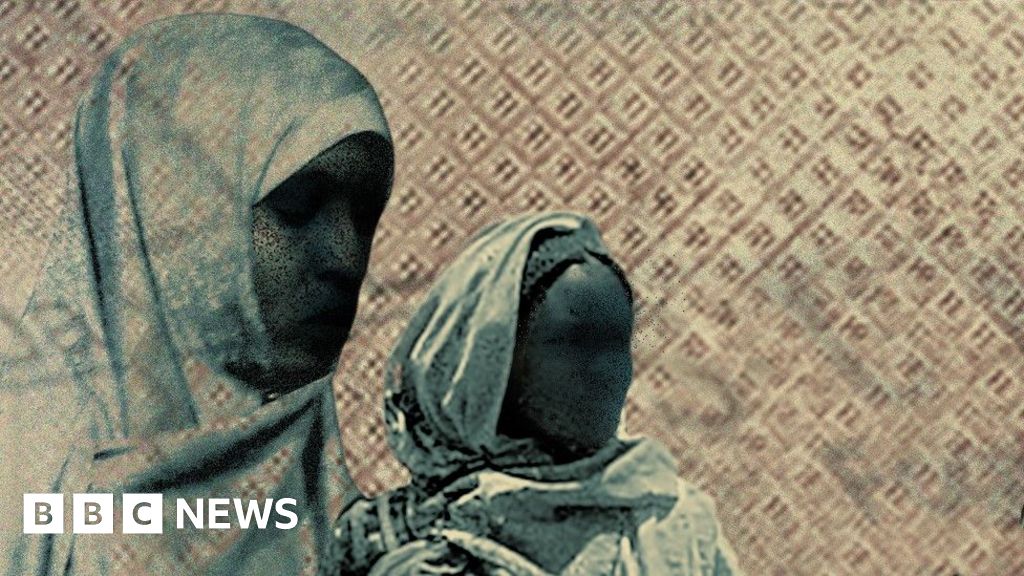ARTICLE AD BOX
By Andrew Clarance
BBC News, Delhi
Image source, Bengal Safari Park
Image caption,Wildlife officials say kangaroos are among the exotic animals smuggled into India
When villagers walking along a road on the edge of a forested village in eastern India first saw three confused, weak and hungry animals, they couldn't believe what they were witnessing.
The animals looked nothing like anything they had seen before. They alerted West Bengal state's forest officials, who told them that the animals were kangaroos - native to Australia but not found in India.
The animals were rescued and sent to a wildlife park to be treated. One died later. The villagers were still confused and surprised with what they had seen. Soon, videos of the kangaroos in India went viral.
"How on Earth are kangaroos turning up in West Bengal," a Twitter user asked.
Debal Ray, the chief wildlife warden of West Bengal, tells the BBC that the animals were most likely left in the open during an anti-smuggling operation by his team.
When he received a tip-off that some exotic animals were being smuggled into the state, he immediately alerted his team. Acting quickly, the officers started checking vehicles along one of the main routes to enter the state.
"The smugglers probably got wind of it, and abandoned the animals on the highway," Mr Ray said.
"They probably ended up here from private breeding farms in southeast Asia," Agni Mitra, deputy director of the regional Wildlife Control Bureau, told the BBC, adding that smugglers often bring non-native, exotic animals to India's border states through Myanmar.
Hours after two injured kangaroos were rescued from near Gajoldoba in West Bengal’s Jalpaiguri district Friday night, two more were spotted at the Farabari Nepali area in the Dabgram forest range Saturday, sending forest officials into a tizzy. pic.twitter.com/akAVfTvK6I
— Forests And Wildlife Protection Society-FAWPS (@FawpsIndia) April 2, 2022The BBC is not responsible for the content of external sites.View original tweet on Twitter
India's anti-smuggling intelligence agency, the Directorate of Revenue Intelligence (DRI), said that the country has seen a rise in demand for exotic animals.
Animals from Bangkok, Malaysia and other "top tourist destinations in South East Asia" are smuggled into the country and make their way to cities across India, it added.
Indian wildlife officials often find that they can't prosecute these smugglers or traders because India's Wildlife Protection Act doesn't protect non-native, exotic animals.
Customs officials have the authority to stop people from transporting wild animals if they don't have proper permits. But they find it difficult to track illegal trade through porous borders.
The DRI said that since there is a ban on trade of native animal species, smugglers have shifted to "exotic species, which has led to disastrous global environmental consequences".
Wildlife activists say owning an exotic pet is considered prestigious - a trend that has only become more popular in recent years.
"A little while back, Zebras were seized in Bangladesh which were destined for a private zoo in India," Shubhobroto Ghosh, an activist with the group World Animal Protection said. "People are doing crazy things."
Indians have long had a liking for exotic animals.
It said pet owners without proper documentation would not be prosecuted. The government wanted to "develop an inventory of exotic live species" in the country and streamline import procedures.
By early 2021, the government received 32,645 disclosure applications which listed exotic animals such as critically endangered lemurs, iguanas, macaws and even kangaroos, reported IndiaSpend, a data analysis website.
Wildlife officials said that despite an uptick in the number of exotic animals being brought into the country as pets, there was still no effective legislation to monitor the trade.
In 1976, India adopted the Convention of International Trade in Endangered Species (CITIES), an agreement ratified by 183 countries, which protects and monitors the trade of endangered plants and animals.
But the country has still not given the multilateral treaty any teeth - it can't be implemented under Indian law.
Lawmakers are reviewing an amendment to India's Wildlife Protection Act which would bring exotic flora and fauna, and other species protected by CITES provisions under wildlife authorities.
But Mr Ghosh is sceptical of its impact.
"Say I am a forest warden and I am your friend, and you have some rare primates from Brazil that you want to keep in your private zoo, you could very well just bribe your way through and get your permit," he explains.
Image source, Shubhobroto Ghosh
Image caption,There has been a rise in demand for exotic pets like this cockatoo, India's anti-smuggling agency says
"A lot of zoos unfortunately are becoming a part of this network - where traders and breeders work together to buy animals, sometimes non-native, exotic ones," Mr Ghosh added.
In April, two men were arrested when a red kangaroo was found in their truck during a routine police check on a highway close to West Bengal's border with the north-eastern state of Assam.
The men told forest officials that they had been handed these kangaroos at a farm in Mizoram, another state in the north-east, to be taken to a zoo in the central Indian state of Madhya Pradesh.
"They produced a supply order from the zoo, and the zoo even confirmed it," Mr Mitra said.
The zoo's curator told a news website that they had been "offered the consignment as a gift".
"Clearly this is a case of smuggling - the supply order was in the name of a farm in Mizoram, which does not even exist," Mr Ghosh said, explaining that under CITES provisions, protected animals have to be declared on a government website.
"There is no declaration of any kangaroos from any farm in Mizoram in government records," Mr Mitra said.
Meanwhile, the two kangaroos - Alex and Xavier - rescued by forest officials are being treated in the Bengal Safari Park, and are making good progress.
"They have some muscle atrophy, which is common in kangaroos when they are squeezed into small spaces while being smuggled," Mr Ray explained.
"If they feel at home, maybe we can display them [to the zoo-going public]. But they have to spend their life in a zoo. We cannot release them into the wild as India is not their natural habitat."

 2 years ago
50
2 years ago
50








 English (US) ·
English (US) ·